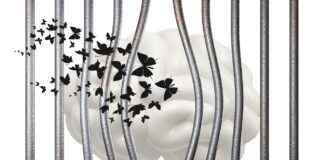This article delves into the world of slip dresses that are currently trending among celebrities. These elegant garments have become a staple in many wardrobes, offering versatility that can elevate any outfit. We will explore the styles, brands, and where you can purchase these fashionable pieces, ensuring you can embrace this trend as well.
A slip dress is a lightweight garment typically made from materials like satin or silk. It resembles lingerie and is celebrated for its simplicity, making it a versatile choice for various occasions. The slip dress can be worn alone or layered, allowing for endless styling possibilities.
Celebrities are drawn to slip dresses for their effortless elegance and comfort. These dresses can easily transition from daytime casual to evening glamour, making them a favorite choice for red carpet events and casual outings alike. The appeal lies in their ability to be styled in numerous ways, catering to different tastes and occasions.
Modern slip dresses often feature adjustable straps, varying lengths, and unique fabrics. These elements can help you choose the best style that suits your personal aesthetic. For instance, a midi-length slip dress with a delicate lace trim can add a touch of sophistication, while a mini version can offer a more playful vibe.
From red carpet appearances to casual outings, numerous celebrities are embracing slip dresses. Stars like Rihanna and Gigi Hadid have been spotted in stunning slip dresses that set trends and inspire fans worldwide. Their fashion choices often influence the styles that become popular among the general public.
Slip dresses can be incredibly versatile. Here are some tips on how to accessorize and layer them for various occasions:
- Daytime Casual Looks: Pair your slip dress with sneakers or sandals and a denim jacket for a relaxed outfit perfect for brunch or casual outings.
- Evening Glamour: Elevate your slip dress for evening events by adding statement jewelry and high heels. Opt for bold colors or patterns to make a striking impression.
Finding the perfect slip dress can be easy with the right retailers. Here are some options:
Luxury brands often feature exquisite slip dresses. Look for designer collections that provide high-quality materials and unique designs. Stores like Net-a-Porter and Farfetch offer a range of options that reflect the latest trends.
If you’re on a budget, don’t worry! Retailers like Zara and ASOS offer stylish slip dresses that won’t break the bank. These options allow you to stay trendy without compromising your budget.
The fabric of a slip dress greatly influences its drape and comfort. Common materials include silk, satin, and lightweight cotton blends. Each fabric offers unique benefits, such as breathability and a luxurious feel, making them ideal choices for slip dresses.
Proper care is essential to maintain the quality of your slip dresses. Here are some effective washing and storage tips:
- Always check the care label before washing.
- Hand wash or use a delicate cycle with cold water.
- Hang to dry to prevent stretching.
Slip dresses can flatter various body shapes when styled correctly. Understanding how to choose the right fit and silhouette can enhance your natural beauty and boost your confidence. For example, a slip dress with a cinched waist can accentuate curves, while a straight-cut design can provide a more relaxed look.

What is a Slip Dress?
A slip dress is more than just a simple garment; it is a fashion staple that has transcended its origins as lingerie to become a beloved piece in modern wardrobes. Characterized by its lightweight fabric, often made from luxurious materials like satin or silk, a slip dress is designed to drape effortlessly over the body, creating a flattering silhouette.
One of the key reasons for the slip dress’s enduring popularity is its versatility. This garment can easily transition from a casual day look to a sophisticated evening ensemble. For instance, it can be worn alone for a minimalist vibe or layered with a t-shirt or turtleneck for a more fashion-forward approach. The simplicity of the slip dress allows for endless styling possibilities, making it a go-to choice for various occasions.
In recent years, we have seen a resurgence of slip dresses in the fashion world, fueled by celebrities and influencers who have embraced their effortless elegance. These dresses can be dressed up or down, making them suitable for everything from brunch dates to red carpet events. This adaptability is a significant factor in why so many are drawn to this timeless piece.
Modern slip dresses often come with adjustable straps, varying lengths, and unique fabric blends, which enhance their appeal. Some styles feature intricate details like lace trim, while others boast bold prints or colors. Understanding these features can help you select a slip dress that aligns with your personal style and enhances your wardrobe.
When it comes to styling a slip dress, the options are virtually limitless. For daytime looks, consider pairing your slip dress with a casual jacket and comfortable footwear such as sneakers or sandals. This creates a laid-back yet chic outfit perfect for running errands or meeting friends.
For evening glamour, elevate your slip dress with statement accessories. High heels and bold jewelry can transform a simple slip dress into a stunning ensemble suitable for formal gatherings. Opt for darker colors or rich textures to make a striking impression as you step out for a night on the town.
As for where to find these fashionable pieces, both high-end and affordable retailers offer a wide range of slip dresses. Luxury brands often feature exquisite designs that highlight quality materials, while budget-friendly options provide stylish choices without compromising on style. This accessibility makes it easy for anyone to incorporate a slip dress into their wardrobe.
When selecting a slip dress, consider the fabric. The material significantly impacts the dress’s drape and overall comfort. Common choices include silk for its luxurious feel, satin for its sheen, and lightweight cotton blends for breathability. Each fabric offers unique benefits, allowing you to choose one that suits your needs.
To maintain the quality of your slip dresses, proper care is essential. Always check the care label for washing instructions, and consider hand washing or using a gentle cycle to prevent damage. Storing your slip dresses properly can also prolong their lifespan; consider hanging them to avoid creasing.
Lastly, slip dresses are suitable for a variety of body types when styled appropriately. Understanding how to choose the right fit can enhance your natural beauty and boost your confidence. Whether you prefer a fitted style or a more relaxed silhouette, there is a slip dress out there for everyone.

Why Are Slip Dresses So Popular Among Celebrities?
Slip dresses have become a fashion staple among celebrities, capturing the essence of effortless elegance and comfort. The allure of these dresses lies in their ability to transition seamlessly from casual daywear to glamorous evening attire, making them a versatile choice for various occasions.
One of the primary reasons celebrities gravitate towards slip dresses is their timeless appeal. The simplicity of a slip dress allows for limitless styling options, enabling stars to express their individuality while maintaining a chic look. Whether it’s a casual lunch date or a high-profile red carpet event, these dresses can be effortlessly dressed up or down.
Moreover, slip dresses are crafted from luxurious fabrics such as silk and satin, which not only enhance their aesthetic but also provide a comfortable fit. This combination of style and comfort is particularly appealing to celebrities who often juggle busy schedules and public appearances.
Another factor contributing to the rise of slip dresses in celebrity wardrobes is their versatility. These dresses can be layered with various outerwear or accessorized with statement pieces to create unique looks. For instance, pairing a slip dress with a tailored blazer and ankle boots can transform it into a sophisticated ensemble suitable for a business meeting, while adding chunky jewelry and strappy heels can elevate the same dress for a glamorous night out.
Additionally, the influence of social media cannot be overlooked. Platforms like Instagram and TikTok have allowed celebrities to showcase their fashion choices to a global audience, inspiring fans to replicate their styles. The ease of styling slip dresses makes them a go-to choice for influencers and fashion icons alike, further solidifying their status in contemporary fashion.
As celebrities continue to embrace slip dresses, they are also experimenting with different styles, colors, and patterns. From classic black and white to vibrant hues and floral prints, the variety available in slip dresses caters to diverse fashion tastes. This experimentation encourages fans to step out of their comfort zones and explore new styles.
Moreover, the rise of sustainable fashion has led many celebrities to opt for slip dresses made from eco-friendly materials. This shift not only promotes a more conscious approach to fashion but also aligns with the values of many modern consumers who prioritize sustainability in their purchasing decisions.
For those looking to emulate celebrity styles, here are some tips on how to style a slip dress:
- Layering: Add a lightweight turtleneck or fitted shirt underneath for a chic daytime look.
- Accessorizing: Incorporate bold jewelry, such as oversized earrings or layered necklaces, to add personality.
- Footwear: Experiment with different shoe styles; sneakers for a casual vibe or heels for a more polished appearance.
- Outerwear: A denim jacket or a long trench coat can provide warmth while enhancing the overall look.
In conclusion, the popularity of slip dresses among celebrities can be attributed to their effortless elegance, versatility, and the influence of social media. As these dresses continue to evolve, they remain a beloved choice for those seeking style and comfort in their wardrobes.

Key Features of Trending Slip Dresses
Slip dresses have made a significant comeback in recent years, becoming a staple in many wardrobes thanks to their versatility and effortless elegance. As fashion evolves, understanding the key features of trending slip dresses is essential for anyone looking to elevate their style. Below, we delve into the defining characteristics that make these dresses a must-have in your closet.
Modern slip dresses are not just about simplicity; they incorporate various elements that cater to individual tastes and preferences. Here are some of the most notable features:
- Adjustable Straps: One of the most practical features of slip dresses is the adjustable straps. This allows for a customizable fit, making it easier to find the perfect length and support for your body type. Whether you prefer a higher neckline or a more relaxed look, adjustable straps offer flexibility.
- Varying Lengths: Slip dresses come in a range of lengths, from mini to maxi. This variety enables you to choose a style that suits the occasion and your personal aesthetic. A shorter slip dress can be ideal for casual outings, while a longer version may be more appropriate for formal events.
- Unique Fabrics: The fabric of a slip dress can significantly impact its overall look and feel. Popular materials include silk, satin, and lightweight cotton blends. Each fabric offers a different drape and comfort level, allowing you to select one that aligns with your style and the season.
- Color and Pattern Variations: Today’s slip dresses are available in a plethora of colors and patterns, ranging from classic neutrals to bold prints. This diversity makes it easy to express your personality through your clothing choices.
- Layering Potential: Slip dresses are perfect for layering. Whether worn over a turtleneck in the winter or under a lightweight jacket in the spring, the layering potential adds to their versatility, allowing you to create different looks with minimal effort.
Understanding these features can help you select the best slip dress that aligns with your personal style. For instance, if you prefer a more fitted look, opt for a dress with adjustable straps that can be tailored to your body shape. If comfort is your priority, choose a fabric like cotton that allows for breathability.
Additionally, consider how you can style your slip dress for various occasions. For a casual daytime look, pairing a midi slip dress with a denim jacket and ankle boots can create a chic ensemble. For evening events, accessorizing with statement jewelry and strappy heels can elevate your outfit to new heights.
In conclusion, the key features of trending slip dresses—adjustable straps, varying lengths, unique fabrics, and layering potential—offer endless styling possibilities. By understanding these elements, you can confidently choose a slip dress that not only flatters your figure but also enhances your wardrobe.

Which Celebrities Are Rocking Slip Dresses Right Now?
Slip dresses have made a significant resurgence in the fashion world, particularly among celebrities who are known for their bold and trendsetting styles. From glamorous red carpet events to casual coffee runs, these versatile pieces have become a favorite choice for many stars. In this section, we will explore which celebrities are currently embracing slip dresses and how their choices are shaping fashion trends globally.
Numerous celebrities have been spotted wearing slip dresses, showcasing their unique styles and personal flair. Here are some notable figures who have embraced this trend:
- Rihanna – Known for her daring fashion sense, Rihanna often opts for slip dresses that feature bold prints or striking colors. Her ability to mix high fashion with street style inspires many fans around the world.
- Kendall Jenner – A model and fashion icon, Kendall frequently wears minimalist slip dresses. She pairs them with chic accessories, creating looks that are both elegant and modern.
- Selena Gomez – Selena has been seen in various slip dresses, often choosing styles that complement her figure. Her looks range from casual daytime outfits to stunning evening ensembles.
- Gigi Hadid – Gigi’s slip dress choices often reflect her laid-back yet fashionable approach. She combines comfort with style, making her outfits relatable to her fans.
- Emma Stone – Emma has graced red carpets in slip dresses that feature intricate detailing. Her choices highlight how slip dresses can be both simple and sophisticated for formal occasions.
These celebrities not only showcase the versatility of slip dresses but also influence fashion trends worldwide. Their choices encourage fans to experiment with different styles and fabrics, making slip dresses a wardrobe staple.
When it comes to styling, celebrities often take creative liberties to make slip dresses their own. Here are some popular styling tips inspired by their looks:
- Layering – Many stars layer their slip dresses with oversized blazers or denim jackets, adding dimension to their outfits.
- Accessorizing – Statement jewelry, such as chunky necklaces or bold earrings, can elevate a simple slip dress, making it suitable for evening events.
- Footwear Choices – The type of shoes can drastically change the vibe of a slip dress. While sneakers create a casual look, strappy heels add a touch of glamour.
- Mixing Textures – Celebrities often mix different fabrics, pairing silk slip dresses with leather jackets or knit cardigans for an interesting contrast.
By adopting these styling techniques, fans can easily replicate the chic looks of their favorite celebrities, making slip dresses a versatile option for any occasion.
For those looking to emulate the styles of these trendsetting celebrities, there are numerous retailers that offer slip dresses inspired by their looks. From high-end designers to affordable brands, options abound to suit every budget.
- High-End Designers – Brands like Chanel and Versace often feature luxurious slip dresses in their collections, perfect for those seeking a high-fashion statement.
- Mid-Range Retailers – Stores like ASOS and Reiss provide stylish options that balance quality and affordability.
- Fast Fashion Brands – For budget-conscious shoppers, retailers like Zara and H&M offer trendy slip dresses that capture the latest styles without breaking the bank.
With the influence of celebrities, slip dresses have become a must-have item in many wardrobes, allowing individuals to express their personal style while staying on-trend.

How to Style a Slip Dress for Different Occasions?
Slip dresses are a fashion essential that can seamlessly transition from day to night. Their versatility allows for endless styling possibilities, making them a favorite among fashion enthusiasts. Here, we will explore how to accessorize and layer slip dresses to create stunning looks suitable for various occasions.
For a relaxed daytime outfit, consider pairing your slip dress with comfortable sneakers or stylish sandals. Adding a denim jacket or a lightweight cardigan can provide an extra layer for cooler weather. This combination is perfect for casual outings, brunches, or strolls in the park. To keep the look fresh, opt for slip dresses in light, breathable fabrics like cotton or linen.
- Footwear: Sneakers, sandals, or espadrilles
- Outerwear: Denim jackets or lightweight cardigans
- Accessories: Crossbody bags and simple jewelry
Transform your slip dress into a glamorous evening ensemble by incorporating statement jewelry and high heels. Choose dresses in bold colors or luxurious fabrics like satin or silk to make a striking impression. A fitted blazer or a tailored coat can add sophistication, making it suitable for formal events or dinner dates.
- Footwear: High heels or stylish ankle boots
- Outerwear: Fitted blazers or tailored coats
- Accessories: Statement necklaces and elegant clutches
For a weekend getaway, slip dresses can be layered creatively. Try wearing a long-sleeve turtleneck underneath for a chic, bohemian vibe. Pairing with ankle boots and a wide-brimmed hat can complete the look, making it perfect for exploring new cities or attending outdoor events.
- Footwear: Ankle boots or stylish flats
- Outerwear: Lightweight trench coats or cardigans
- Accessories: Wide-brimmed hats and oversized sunglasses
Don’t be afraid to mix textures! Pair your slip dress with a chunky knit sweater or a leather jacket to create a contrasting style. This not only adds depth to your outfit but also allows you to express your personal style. Experimenting with different materials can lead to unique combinations that stand out.
Adapting your slip dress for different seasons is essential. In the warmer months, opt for lighter fabrics and floral patterns. As the weather cools, layer with tights and knee-high boots. Incorporate seasonal colors and prints to keep your look fresh and in tune with the time of year.
- Spring/Summer: Light fabrics, floral prints
- Fall/Winter: Layering with tights, darker colors
With these styling tips, you can maximize the potential of your slip dress, creating looks that are suitable for day, night, and everything in between. Whether dressing down for a casual day out or dressing up for an elegant evening, the slip dress remains a timeless piece that can be tailored to fit any occasion.
Daytime Casual Looks
When it comes to , the slip dress is a versatile and stylish choice that can easily transition from morning brunch to afternoon outings. To achieve a relaxed yet chic ensemble, consider pairing your slip dress with sneakers or sandals, complemented by a classic denim jacket. This combination not only exudes effortless style but also ensures comfort throughout the day.
The beauty of a slip dress lies in its simplicity. Made from lightweight fabrics like satin or silk, these dresses drape beautifully, creating a flattering silhouette for various body types. By opting for a slip dress in a solid color or subtle print, you can easily accessorize to suit your personality and the occasion.
- Sneakers: For a sporty vibe, choose white sneakers that provide a clean and fresh look. This pairing works particularly well with shorter slip dresses, giving you a youthful edge.
- Sandals: If you prefer a more relaxed feel, opt for flat sandals or slides. They add a touch of bohemian flair, perfect for warm weather outings.
- Denim Jacket: A timeless piece, the denim jacket not only adds warmth for cooler days but also brings a casual element to your outfit. You can choose a classic blue wash or even a distressed style for a trendy touch.
Accessorizing your slip dress can elevate your look even further. Consider adding a crossbody bag for practicality, or statement earrings to draw attention to your face. Layering delicate necklaces can also add a touch of elegance without overwhelming the simplicity of the dress.
For those who want to experiment with colors and patterns, don’t shy away from bold prints or vibrant hues. A floral print slip dress paired with neutral sneakers and a light denim jacket can create an eye-catching ensemble that stands out in casual settings.
In addition to being fashionable, this outfit is incredibly versatile. Whether you’re heading out for a brunch date, running errands, or enjoying a casual day with friends, this combination ensures you look put-together without sacrificing comfort. The slip dress can be dressed up or down, making it a staple in any wardrobe.
In summary, styling a slip dress for daytime outings is all about balancing comfort and style. By choosing the right footwear and layering pieces, you can create an effortlessly chic look that is perfect for any casual occasion.
Evening Glamour
When it comes to achieving a stunning evening look, the slip dress stands out as a timeless choice. Its sleek silhouette and luxurious feel make it a favorite among fashion enthusiasts. However, to truly elevate your slip dress for evening events, it’s essential to incorporate the right accessories and styling elements.
To transform your slip dress into an evening-ready masterpiece, consider the following tips:
- Add Statement Jewelry: Bold necklaces, oversized earrings, or stacked bracelets can add a touch of glamour to your look. Opt for pieces that complement the neckline of your slip dress, drawing attention to your face.
- Choose High Heels: The right pair of heels can elevate not just your height but also the overall aesthetic of your outfit. Consider strappy sandals or classic pumps in metallic shades to add a chic touch.
- Play with Colors and Patterns: While classic black or white slip dresses are versatile, don’t shy away from vibrant colors or daring patterns. A rich jewel tone or a floral print can make a striking impression at formal gatherings.
- Incorporate a Statement Bag: A clutch or a small crossbody bag in a contrasting color can serve as both a functional and stylish accessory. Look for textures like sequins or leather to add dimension to your outfit.
- Layer with a Chic Outerwear: Depending on the season, a tailored blazer or a stylish shawl can enhance your slip dress. Choose outerwear that is structured to balance the softness of the dress.
When selecting a slip dress for evening events, fabric choice is crucial. Opt for luxurious materials like:
- Satin: Known for its glossy finish, satin adds a touch of elegance and drapes beautifully on the body.
- Silk: This natural fiber is lightweight and breathable, providing comfort without sacrificing style.
- Velvet: For colder evenings, consider a velvet slip dress. Its rich texture and depth of color can create a sophisticated look.
Accessorizing is the key to personalizing your slip dress. Here are some ideas:
- Layering Necklaces: Combine different lengths and styles of necklaces for a trendy layered look.
- Bold Makeup: A striking red lip or smoky eyes can complement your evening attire, ensuring you stand out.
- Hair Styling: Opt for sleek updos or soft waves to frame your face and highlight your jewelry.
Finding the right slip dress can be an enjoyable experience. Here are some popular retailers:
- High-End Brands: Look to luxury designers like Gucci and Chanel for exquisite options.
- Mid-Range Retailers: Stores like Reiss and Anthropologie offer stylish choices that won’t break the bank.
- Online Platforms: Websites like ASOS and Nordstrom frequently update their collections with trendy slip dresses.
By following these tips and incorporating the right accessories, you can effortlessly elevate your slip dress for any evening occasion. Embrace your unique style and let your slip dress shine!

Where to Buy Celebrity-Inspired Slip Dresses?
Finding the perfect slip dress can be a delightful experience, especially when you know where to look. With the rise of celebrity fashion, many retailers have started to offer slip dresses that mirror those worn by your favorite stars. This article will guide you through various online and physical stores that provide an array of styles, ensuring you can find the ideal slip dress to elevate your wardrobe.
Slip dresses are not just a passing trend; they embody timeless elegance and versatility. Celebrities often showcase these dresses in various ways, making them a go-to choice for both casual and formal occasions. By shopping for similar styles, you can achieve that effortless chic look that many celebrities are known for.
- ASOS – Known for its wide selection, ASOS offers an extensive range of slip dresses that cater to different tastes and budgets. You can find everything from simple satin designs to more elaborate styles with unique patterns.
- Nordstrom – For those seeking high-quality options, Nordstrom features designer slip dresses that are perfect for special occasions. Their collection often includes pieces inspired by celebrity looks.
- Revolve – This retailer is a favorite among fashion influencers and offers a curated selection of trendy slip dresses. You can find styles that reflect current runway trends.
- Urban Outfitters – If you’re looking for more affordable yet stylish options, Urban Outfitters has a variety of slip dresses that are perfect for casual outings.
While online shopping is convenient, sometimes you want to try on a dress before purchasing. Here are some physical stores where you can find slip dresses:
- Anthropologie – Known for its bohemian style, Anthropologie often carries unique slip dresses that stand out.
- Free People – This store specializes in vintage-inspired clothing, and their slip dresses are no exception. Expect flowy fabrics and beautiful prints.
- H&M – For budget-conscious shoppers, H&M offers trendy slip dresses that are perfect for everyday wear.
When searching for the perfect slip dress, consider the following factors:
- Fit – Ensure the dress flatters your body shape. Look for adjustable straps and different lengths.
- Fabric – Choose materials that are comfortable against your skin. Silk and satin are popular choices for their luxurious feel.
- Style – Decide whether you want a classic look or something more modern with patterns or embellishments.
Once you’ve found the perfect slip dress, styling it like a celebrity can elevate your look. Here are some tips:
- Layering – Add a denim jacket or a chic blazer for a more polished appearance.
- Accessories – Statement jewelry or a stylish handbag can enhance your outfit.
- Footwear – Sneakers for a casual vibe or heels for a more glamorous look can change the entire outfit’s feel.
In conclusion, finding a slip dress that resonates with your style is easier than ever with the right retailers at your disposal. Whether you prefer shopping online or in-store, there are numerous options available to suit every taste and budget. With the right choices, you can channel your inner celebrity and enjoy the elegance and versatility that slip dresses offer.
High-End Retailers
When it comes to fashion, luxury brands are synonymous with elegance and sophistication. Among the myriad of styles they offer, slip dresses stand out as a timeless piece that embodies both comfort and chic appeal. These exquisite garments are designed to drape beautifully on the body, enhancing the wearer’s natural silhouette.
Luxury slip dresses are crafted from high-quality materials such as silk and satin, which not only feel luxurious against the skin but also exude a sense of refinement. The attention to detail in designer collections often means unique designs that you won’t find in fast fashion. This exclusivity is a significant draw for fashion enthusiasts who wish to elevate their wardrobes with pieces that make a statement.
When selecting a luxury slip dress, consider the following key features:
- Fabric Quality: Look for dresses made from silk or high-grade satin that provide a soft, flowing feel.
- Unique Designs: Seek out dresses with interesting cuts, asymmetrical hems, or intricate details such as lace trim.
- Fit and Comfort: Ensure the dress complements your body shape and allows for easy movement.
Finding the perfect luxury slip dress is easier than ever with a variety of retailers specializing in high-end fashion. Here are some top recommendations:
Renowned luxury fashion houses such as Chanel, Gucci, and Versace often feature stunning slip dresses in their collections. These brands are celebrated for their craftsmanship and attention to detail, making their pieces a worthy investment. Additionally, online luxury boutiques like Net-a-Porter and Farfetch provide a convenient way to shop for designer slip dresses from the comfort of your home.
Several luxury brands have become synonymous with the slip dress trend:
- Saint Laurent: Known for its minimalist aesthetic, Saint Laurent offers slip dresses that embody understated elegance.
- Calvin Klein: This brand often features modern, sleek designs perfect for day or night.
- Alexander Wang: Wang’s designs frequently incorporate unique textures and silhouettes, making them standout pieces.
Investing in a luxury slip dress can be a wise decision for those looking to enhance their wardrobe. These pieces are not only versatile but also timeless, allowing for various styling options. A well-chosen slip dress can transition seamlessly from a casual daytime look to an elegant evening ensemble with the right accessories.
Styling a luxury slip dress can be an enjoyable experience. Here are some practical tips:
- For a casual day look, layer your slip dress with a denim jacket and pair it with chic sneakers.
- To achieve an elegant evening look, accessorize with statement jewelry and opt for strappy heels.
- Experiment with layering by adding a turtleneck underneath for a trendy, chic vibe.
Luxury slip dresses are more than just a fashion statement; they are an investment in quality and style. With the right choices, you can find the perfect slip dress that not only enhances your wardrobe but also reflects your personal style.
Affordable Options
When it comes to fashion, affordability and style don’t have to be mutually exclusive. In recent years, slip dresses have surged in popularity, becoming a favorite among fashion enthusiasts and celebrities alike. These versatile pieces can be dressed up or down, making them a must-have in every wardrobe. However, finding trendy slip dresses that won’t break the bank can sometimes be a challenge. Fortunately, there are numerous budget-friendly retailers that offer stylish options without sacrificing quality.
Many retailers have embraced the slip dress trend, providing stylish options that cater to various tastes. Here are some top picks for budget-friendly stores where you can find the perfect slip dress:
- ASOS – Known for its wide range of fashionable clothing, ASOS offers an extensive selection of slip dresses in various colors and styles. Their affordable prices and frequent sales make it easy to find a trendy dress that fits your budget.
- Zara – This popular fast-fashion retailer frequently updates its collection, featuring chic slip dresses that are perfect for any occasion. With their modern designs and reasonable prices, Zara is a go-to for style-savvy shoppers.
- H&M – H&M is renowned for its affordable yet fashionable clothing. Their slip dresses often come in various fabrics, including lightweight cotton and satin, making them ideal for layering or wearing alone.
- Forever 21 – If you’re looking for trendy and youthful designs, Forever 21 has a variety of slip dresses at budget-friendly prices. This retailer often features bold prints and colors, perfect for making a fashion statement.
- Target – Target has become a beloved destination for affordable fashion. Their clothing line often includes stylish slip dresses that are perfect for casual outings or dressier events.
When shopping for a slip dress, consider the following factors to ensure you find the perfect fit:
- Fabric – Look for breathable materials like cotton or silk blends that provide comfort and drape nicely.
- Length – Slip dresses come in various lengths, from mini to maxi. Choose a length that complements your body shape and the occasion.
- Color and Pattern – Opt for classic colors like black or nude for versatility, or choose vibrant patterns for a more playful look.
- Layering Potential – Consider how the dress can be styled with jackets, cardigans, or accessories for different occasions.
Once you’ve found the perfect slip dress, it’s time to think about accessories. Here are some tips to elevate your look:
- Layering – Add a denim or leather jacket for a casual vibe, or a structured blazer for a more polished look.
- Shoes – Sneakers or sandals work well for daytime, while heels or ankle boots can elevate your outfit for evening events.
- Jewelry – Simple jewelry can enhance your outfit without overpowering the slip dress. Consider delicate necklaces or statement earrings.
In conclusion, finding affordable slip dresses that are both stylish and versatile is easier than ever. With a plethora of budget-friendly retailers offering trendy options, you can effortlessly incorporate this fashion staple into your wardrobe without overspending. Embrace the slip dress trend and enjoy the freedom of expressing your unique style!

What Fabrics Are Best for Slip Dresses?
When it comes to choosing the perfect slip dress, fabric selection plays a crucial role in determining both the drape and overall comfort of the garment. Slip dresses are celebrated for their effortless elegance and versatile styling options, but the material can make all the difference in how they look and feel on your body. Let’s explore some of the most popular fabrics used in slip dresses and their unique benefits.
Silk is often considered the gold standard for slip dresses. This natural fiber is known for its luxurious feel and beautiful drape, making it a favorite among fashionistas. Silk slip dresses can effortlessly transition from day to night, providing a soft sheen that catches the light beautifully. Additionally, silk is breathable, which makes it a great choice for warmer weather.
Satin is another popular choice for slip dresses, offering a similar aesthetic to silk but at a more affordable price point. The glossy finish of satin creates a chic and sophisticated look, perfect for formal occasions. While satin may not have the same breathability as silk, it still provides a comfortable fit and a flattering silhouette.
For those seeking a more casual option, lightweight cotton blends are an excellent choice. These fabrics are typically softer and more breathable, making them ideal for everyday wear. Cotton slip dresses can be easily styled with sneakers or sandals, making them perfect for brunch dates or casual outings. Additionally, cotton is easy to care for, which adds to its appeal.
Chiffon is a lightweight, sheer fabric that adds a romantic touch to slip dresses. Often layered over a solid base, chiffon can create a dreamy, ethereal look. This fabric is perfect for evening events, as it adds an element of movement and grace to your outfit. However, it’s important to note that chiffon may require more careful handling and washing to maintain its delicate nature.
For a more dramatic effect, velvet slip dresses have gained popularity in recent seasons. This fabric exudes richness and depth, making it an excellent choice for evening wear or special occasions. Velvet is not only visually stunning but also provides warmth, making it suitable for cooler weather. Pairing a velvet slip dress with statement accessories can create a striking ensemble.
Choosing the right fabric for your slip dress is essential for achieving the desired look and feel. Whether you opt for the luxurious touch of silk, the affordability of satin, the casual comfort of cotton blends, the romantic flow of chiffon, or the bold statement of velvet, each fabric offers unique benefits that cater to different occasions and personal styles. By understanding these materials, you can select the perfect slip dress that enhances your wardrobe and reflects your individual taste.

How to Care for Your Slip Dresses?
Slip dresses are a timeless wardrobe staple, known for their elegance and versatility. To ensure these delicate pieces maintain their beauty and longevity, proper care is crucial. Here, we provide you with essential washing and storage tips that will keep your slip dresses looking fresh and new.
- Read the Care Label: Always check the care label for specific washing instructions. This will help you understand the best way to clean your garment without damaging it.
- Hand Wash: Whenever possible, hand washing is the gentlest method for cleaning slip dresses. Use cold water and a mild detergent, gently agitating the fabric to remove dirt and stains.
- Machine Wash Cautiously: If you prefer machine washing, place your slip dress in a mesh laundry bag and use a delicate cycle with cold water. Avoid washing with heavy items that could cause snagging.
- Avoid Bleach: Never use bleach on your slip dresses, as it can cause discoloration and damage the fabric.
- Drying Tips: After washing, lay the dress flat on a clean towel to absorb excess water. Avoid wringing it out, as this can distort the shape. Hang it to dry away from direct sunlight to prevent fading.
How you store your slip dresses can significantly impact their lifespan. Here are some effective storage tips:
- Use Padded Hangers: Instead of standard hangers, opt for padded or satin hangers to prevent shoulder bumps and creases.
- Keep in a Cool, Dry Place: Store your dresses in a cool, dry environment, away from humidity and direct sunlight, which can cause fading and fabric deterioration.
- Use Garment Bags: For long-term storage, consider using breathable garment bags to protect your dresses from dust and pests.
In addition to washing and storage, here are some extra tips to keep your slip dresses in top condition:
- Ironing: If your slip dress is wrinkled, use a low heat setting on your iron or a steamer to gently remove wrinkles. Always iron on the reverse side to protect the fabric.
- Spot Cleaning: For minor stains, spot clean with a damp cloth and mild soap instead of washing the entire garment.
- Rotate Your Wardrobe: To avoid wear and tear, rotate your slip dresses regularly, giving each piece time to rest between wears.
By following these comprehensive care tips, you can ensure that your slip dresses remain a beautiful and enduring part of your wardrobe. With a little attention and effort, these delicate garments can continue to shine for years to come.

Are Slip Dresses Suitable for All Body Types?
Slip dresses are a timeless fashion staple that can be incredibly flattering when styled appropriately. Their versatile design allows them to complement a variety of body shapes, making them a popular choice among fashion enthusiasts. However, understanding how to select the right fit and silhouette is essential for enhancing your natural beauty and boosting your confidence.
Before diving into styling tips, it’s important to recognize the different body shapes:
- Hourglass: Characterized by a well-defined waist and balanced bust and hips.
- Apple: Wider upper body with narrower hips and legs.
- Pear: Narrow shoulders and wider hips.
- Rectangle: Similar width in shoulders, waist, and hips.
- Inverted Triangle: Broader shoulders with narrow hips.
When selecting a slip dress, consider the following:
- Length: Midi and maxi lengths can be flattering for taller individuals, while shorter styles may accentuate legs for those with a more petite frame.
- Fabric: Lightweight materials like silk or satin drape beautifully, while structured fabrics can offer more support.
- Strap Styles: Adjustable straps allow for a customized fit, accommodating various shoulder widths.
Here’s how to style slip dresses for various body shapes:
- For Hourglass Figures: Opt for slip dresses that cinch at the waist to highlight your curves. A belted style can enhance your silhouette.
- For Apple Shapes: Choose A-line slip dresses that flow away from the body, providing a balanced look. Empire waist designs can also be flattering.
- For Pear Shapes: Look for dresses that draw attention to the upper body, such as those with intricate necklines or embellishments. Flared skirts can balance the proportions.
- For Rectangle Shapes: Consider slip dresses with ruffles or layers to create the illusion of curves. A wrap-style dress can also add definition to the waist.
- For Inverted Triangle Shapes: A slip dress with a V-neckline can elongate the torso, while a flowing skirt can help balance broader shoulders.
Accessories play a crucial role in styling slip dresses:
- Layering: Add a fitted blazer or a denim jacket for a chic layered look.
- Shoes: Pair with ankle boots for a casual vibe or strappy heels for an elegant evening look.
- Jewelry: Statement earrings or layered necklaces can enhance your outfit without overwhelming it.
Ultimately, the most important aspect of wearing a slip dress is feeling confident in your skin. Embrace your body shape and choose styles that make you feel beautiful. Slip dresses can be incredibly versatile, and with the right styling, they can flatter any figure.
In conclusion, slip dresses are suitable for all body types when styled correctly. By understanding your body shape, selecting the right fit, and accessorizing wisely, you can create stunning looks that enhance your natural beauty and boost your confidence.
Frequently Asked Questions
- What occasions are slip dresses suitable for?
Slip dresses are incredibly versatile! You can dress them up for formal events with heels and statement jewelry or keep it casual with sneakers and a denim jacket for brunch with friends.
- How do I choose the right size for a slip dress?
Choosing the right size is all about understanding your body shape. Look for adjustable straps and consider how the fabric drapes. A well-fitted slip dress should hug your curves without being too tight.
- Can I wear a slip dress in winter?
Absolutely! Layer your slip dress with a turtleneck underneath, add some tights, and throw on a stylish coat. It’s all about how you style it!
- What fabrics should I look for in a slip dress?
Silk and satin are popular choices for their luxurious feel and drape. Lightweight cotton blends can also be a great option for comfort and breathability.
- How should I care for my slip dresses?
To keep your slip dresses looking fabulous, always check the care label. Hand washing in cold water is often best, and hang to dry to maintain their shape and quality.














